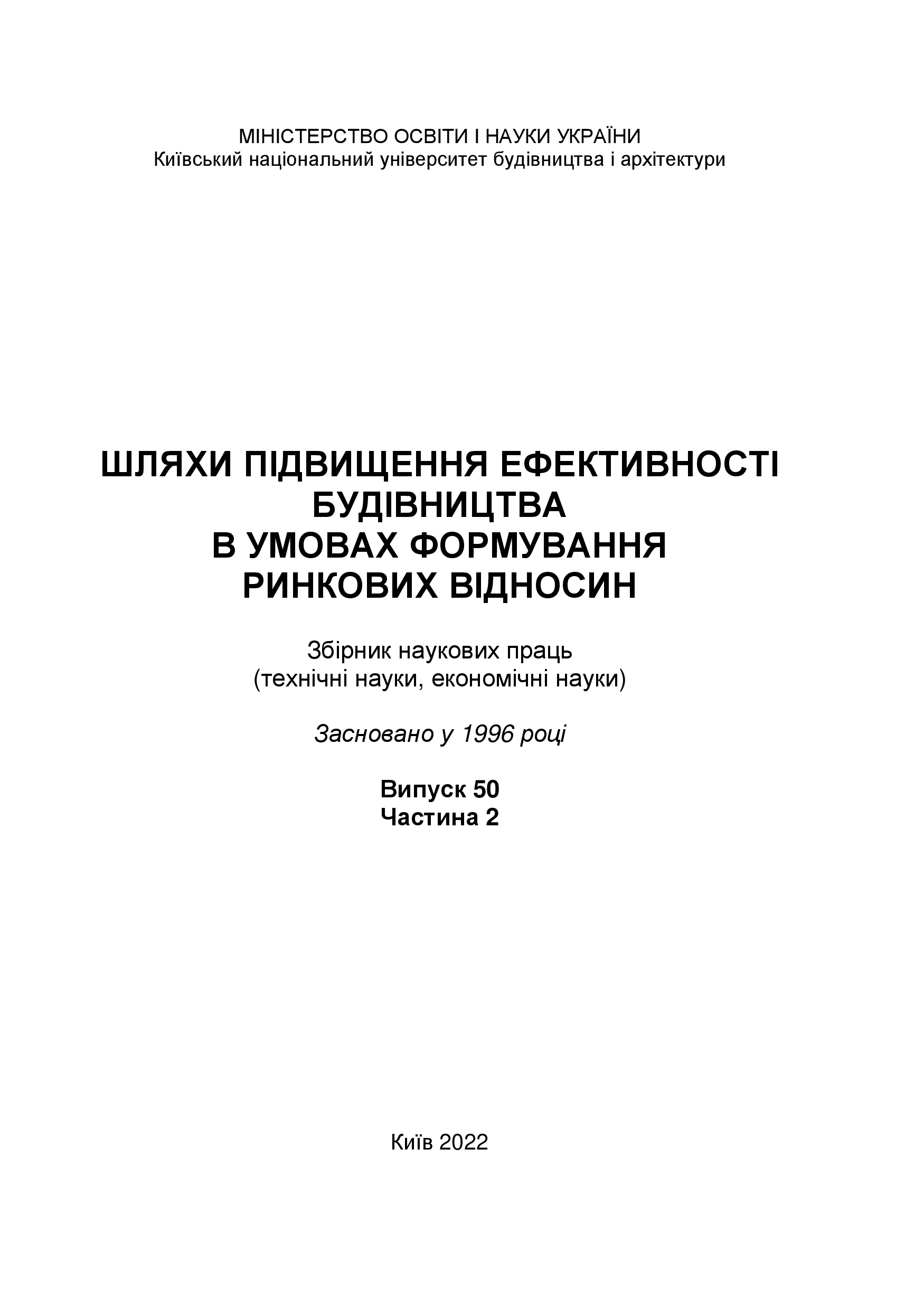Methodological regulation and analytical- information support of potential management in the context of organizational development an enterprise
DOI:
https://doi.org/10.32347/2707-501x.2022.50(2).93-106Keywords:
potential, enterprise, enterprise potential, economic potential, organizational development, potential managementAbstract
Ensuring the effectiveness of organizational changes is associated with the need to take into account risks and design actions to prevent the occurrence of conflict situations and overcome resistance to changes, the reasons for which may be the unnecessarily negative reflexive nature of the company's staff's perception of radical transformations. To assess the radicality of structural changes, it is proposed to use a methodical approach to positioning relevant projects in the space formed by integral assessments of the impact of the results of the implementation of such transformations on the organizational level of management, the level of the organization of the production process, and the level of the organization of personnel management. For the proposed scale for assessing the radicality of structural transformation projects, recommendations have been developed for the purposeful use of tools for countering resistance to organizational changes on the example of enterprises implementing construction projects.
The main research hypothesis consists in the assumption that increasing the level of project management effectiveness depends on the effectiveness of cognitive mechanisms and is associated with the use of modern concepts of information modeling and integrated project implementation.
The necessity of using a selective approach to the organization of planning structural changes has been proven, which is proposed to be carried out by selecting the following types of construction of the appropriate planning system: operational, focused mainly on optimizing relations and connections of units; design, which involves making changes in the principles of structural construction of the enterprise (in the range of choosing between the options of centralization or decentralization); autonomous, based on the support of strategic orientation and adaptive orientation of structural changes as an element of a constantly operating system of adaptation of the enterprise to changes in economic conditions.
References
Bogers M.A., Lhuillery S. Functional perspective on learning and innovation: investigating the organization of absorptive capacity. Industry and Innovation. 2011. № 18(6). Р. 581–610.
Berbner Y., Rayby P. Instruments are not the main thing. McKinsey Вulletin. 2005. № 10. Сайт Management.com.ua. Режим доступу : http://www.management.com.ua.
The ArchiMate 3.0.1 Specification. URL: http://pubs. opengroup.org/architecture/archimate3-doc/toc.html
Aldea A., Iacob M. E., Lankhorst M. Capability- Based Planning. The Link between Strategy and Enterprise Architecture. United Kingdom : The Open Group, 2016. 35 р.
Wu Z., Ming X. Technology solutions for product life¬cycle knowledge management: Framework and a case study. International Journal of Production Research. 2014. Vol. 52. Issue 21. P. 6314–6334.
Трач Р.В. BIM та великі дані: перспектива генерування нових знань в будівництві Вісник Національного університету водного господарства та природокористування. Технічні науки. 2020. Вип. 3. С. 136-147
Аксельрод Р. Б. Трач Р. В., Чернишев Д. О. Інноваційні напрями оновлення операційних систем будівельних підприємств в умовах нестабільного бізнес-середовища проекту. Управління розвитком складних систем. 2021. 48. С. 102-113.
Рижакова Г. М., Кіщак Н. Г. Визначальні компоненти методологічної платформи трансформації системи управління будівельними підприємствами в умовах цифровізації. Управління розвитком складних систем, 2021. № 48. С. 95 – 101, dx.doi.org10.32347/2412-9933.2021.48.95-101.
Шматько Н.М. Організаційний розвиток великомасштабних економіко-виробничих систем: підтримка стійкості та інституціоналізація взаємодії: монографія. Харків: ПП «Технологічний центр», 2019. 368 с.
Трач Р. В., Рижакова Г. М., Крижановський В. І. Інформаційне моделювання та концепція інтегрованої реалізації будівельних проєктів, як основа інноваційного розвитку будівельного підприємства.Управління розвитком складних систем : зб.наук. праць. 2017. Вип. 31. С. 173–178.
Шпаков А. В. Рижакова Г.М. Кіщак Н.Г. Методологічна регламентація та аналітико–інформаційне забезпечення трансформації операційних систем підприємств Формування ринкових відносин в Україні. 2021. № 11. С. 76-83.
Аксельрод Р. Б., Кіщак Н. Г. Особливості атрибуції інструментарію цифрового адміністрування операційною діяльністю будівельних підприємств. Економіка та держава. 2022. № 8. С. 99-104.
Рижакова Г. М., Кіщак Н. Г., Хоменко О.М. Сучасний вектор оновлення будівельного девелопменту в контексті стратагем Integrated Project Delivery. Управління розвитком складних систем, 2022. № 49. С. 113 – 123, dx.doi.org10.32347/2412-9933.2022.49.113–123.
Sorokina L.V. Capital cost management at banking institutions based on neuro-fuzzy modelling. Actual Problems in Economics, 2014. (154). Рр. 06.
Stetsenko, S., Sorokina, L. (2021) Model of a Company Competitiveness Control by Means of Artificial Intelligence Tools. International Journal of Emerging Trends in Engineering Research, 2021. 9(2). Рр. 60-65.
Shpakov, A., Stetsenko, S., Shpakova, H., Sorokina, L., Akselrod, R. Assessment of the Influence of Adaptability Factors on the Effectiveness of Managing Changes in Enterprises by Fuzzy Logic. Scientific Horizons , 2021, 24(10), pp. 72–82
Downloads
Published
How to Cite
Issue
Section
License

This work is licensed under a Creative Commons Attribution 4.0 International License.
Authors who publish with this journal agree to the following terms:
- Authors retain copyright and grant the journal right of first publication with the work simultaneously licensed under a Creative Commons Attribution License that allows others to share the work with an acknowledgement of the work's authorship and initial publication in this journal.
- Authors are able to enter into separate, additional contractual arrangements for the non-exclusive distribution of the journal's published version of the work (e.g., post it to an institutional repository or publish it in a book), with an acknowledgement of its initial publication in this journal.
- Authors are permitted and encouraged to post their work online (e.g., in institutional repositories or on their website) prior to and during the submission process, as it can lead to productive exchanges, as well as earlier and greater citation of published work (See The Effect of Open Access).

